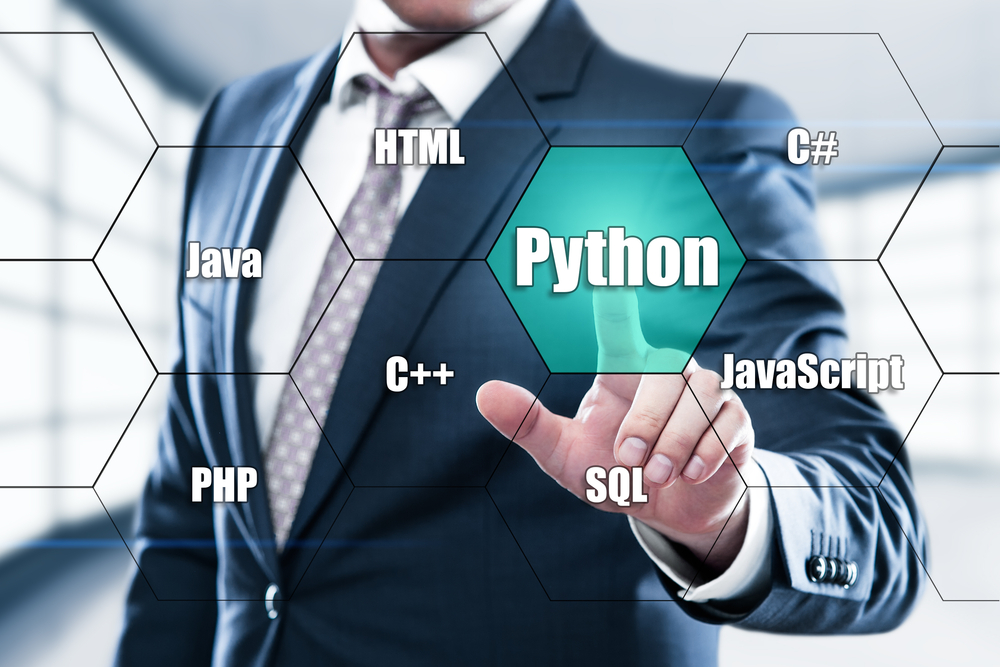Why Should You Learn Python Programming
Why Should You Learn Python Programming?
Python is an interpreted, powerful and an object-oriented language. It is a general-purpose programming language with a wide range of applications like web development, designing Graphical User Interface and mathematical computing. Guido van Rossum created this language because he wanted a language with simple syntax and that was easily extensible.

It was named python after a comedy series of the late seventies, “Monty Python’s Flying Circus”.
Learn Python programming language as it has many features such as:
- East to read
- Easy to maintain
- Has a broad standard library
- Supports interactive mode
- Portability
- Extendibility
- Provides interface to databases
- Supports GUI programming
- It is scalable
REASONS WHY YOU SHOULD LEARN PYTHON PROGRAMMING
- PYTHON IS A POWERFUL LANGUAGE – Python can handle big data (complex, voluminous data, important to many companies) because of its generators, the expressions, and functions. These generators will allow easy, iterative processing of things thus handling large data one at a time.
- PYTHON IS A FAST LANGUAGE – Python programming language has been upgraded over the years, and the current Pypy project gives tremendous execution speed. PyPy is comprised of the Just in Time compiler, which makes it faster than other compilers and interpreters and provides massive concurrency as well.
- PYTHON IS A BROAD LANGUAGE – Python language can be used in various fields such as system automation, testing, ETL to gaming, CGI and web development. Python is also used in animation and developing web browser.
- PYTHON IS EASY TO LEARN – Python is easy to learn because of the following factors:
- Simple syntax – Python has simple syntax in simple English keywords. It doesn’t use a complicated combination of words and symbols that can be hard to remember.
- Not Strict – unlike other programming languages like C and C++, there is no need to put a semicolon at the end of every statement to compile it.
- You can build a proper functioning program with graphics in fewer lines of code with the help of python
- Python language is widely known and supported, and it will never go out of practice. So one must definitely learn python programming .
- PYTHON IS A COMPLETE LANGUAGE – Python is a mixture of scripting languages and the compiling languages. It is a combination of easiness of scripting language and advanced tools offered by the compiling languages.
- PYTHON CAN BE USED WITH IoT – IoT stands for the Internet of Things and python takes the complete opportunity of this platform.
- PYTHON HAS AN OPEN- SOURCE ADVANTAGE – Python comes with an open source advantage, which means it doesn’t allow any modification and redistribution.
- With python language on your resume, you can grab various job opportunities like:
- Software Engineer
- Research Analyst
- Data Analyst
- Data Scientist
- Software Developer
- PYTHON IS A BEGINNER’S LANGUAGE -For a beginner, the prerequisites of python programming language are the knowledge of basic computer programming languages, which is not tough at all. They can be learned through trusted sites and self-study from python programming books.
- PYTHON IS INTERPRETED – Python is similar to PERL and PHP. They are interpreted at the runtime and do not need a compiler. You can directly interact with the interpreter to write your programs.
TUTORIAL FOR BEGINNERS-
- Code every day – Practice makes man perfect. Program every day so that you are never out of concepts and practice.
- Take notes – Taking down notes will help you in the long-term redemption of syntax and tricks that are frequently used.
- Interact with coders and professionals – Interact with people who program frequently. Surround yourself with people who program and keep yourself updated with current programming trends.
- Hunt down all the bugs by yourself – Finding bugs can be time-consuming and tiring, make sure you do it yourself for better understanding.
- Pair program – Pair programming is a concept where to people code together on the same problem.
- Ask your doubts – Don’t be afraid to ask questions.
- Build something – Start programming and building big or small projects on your own.











